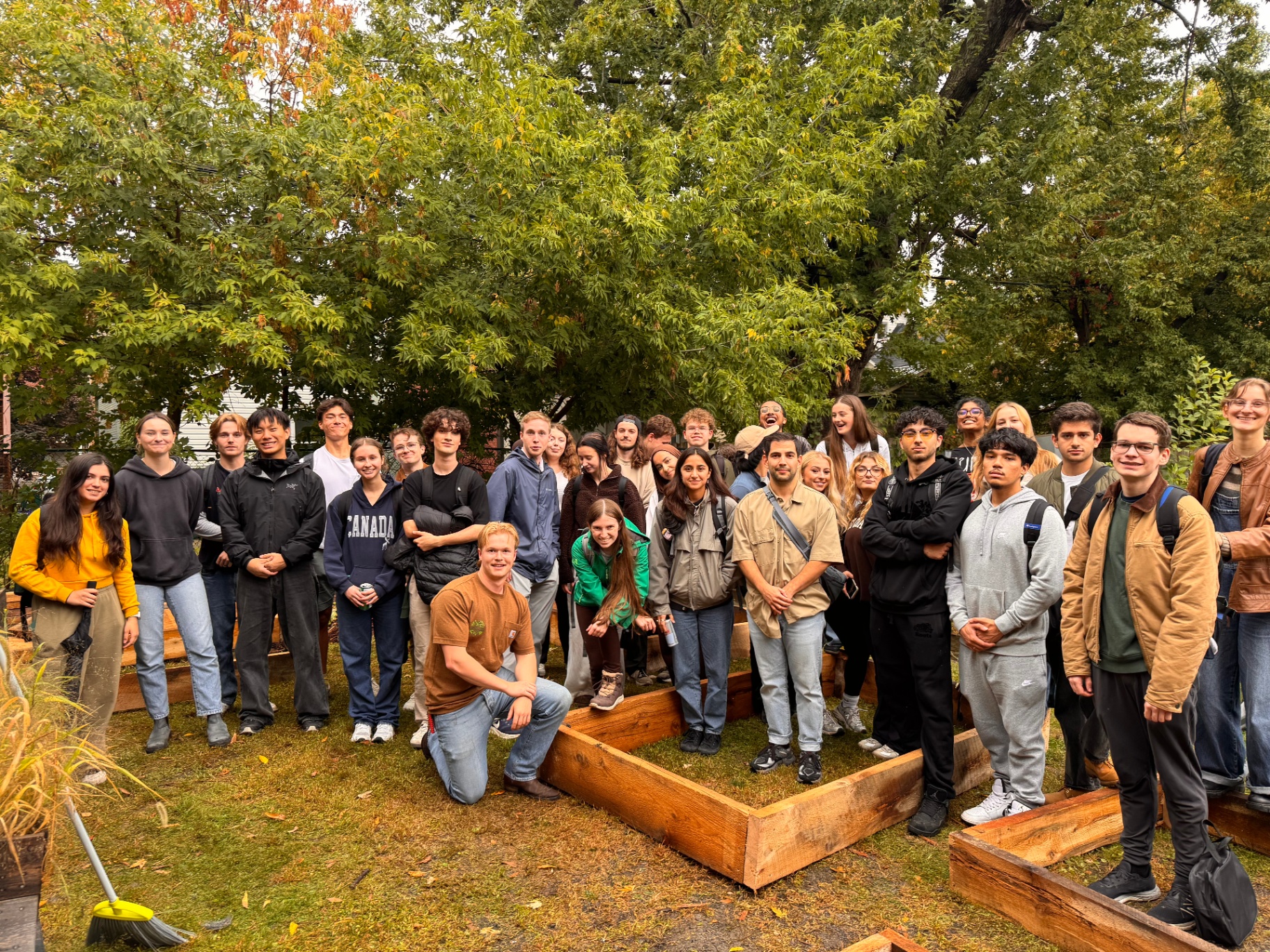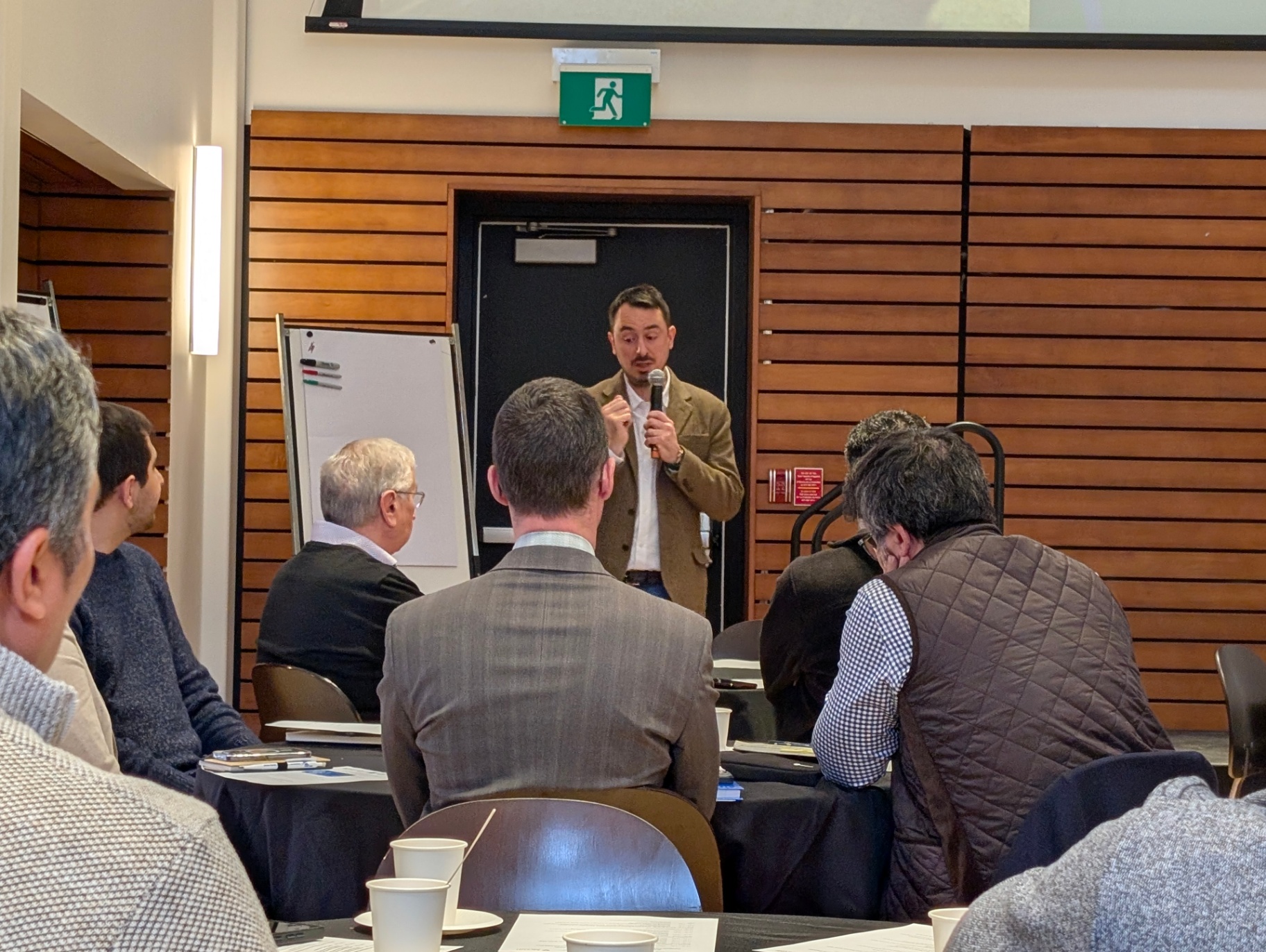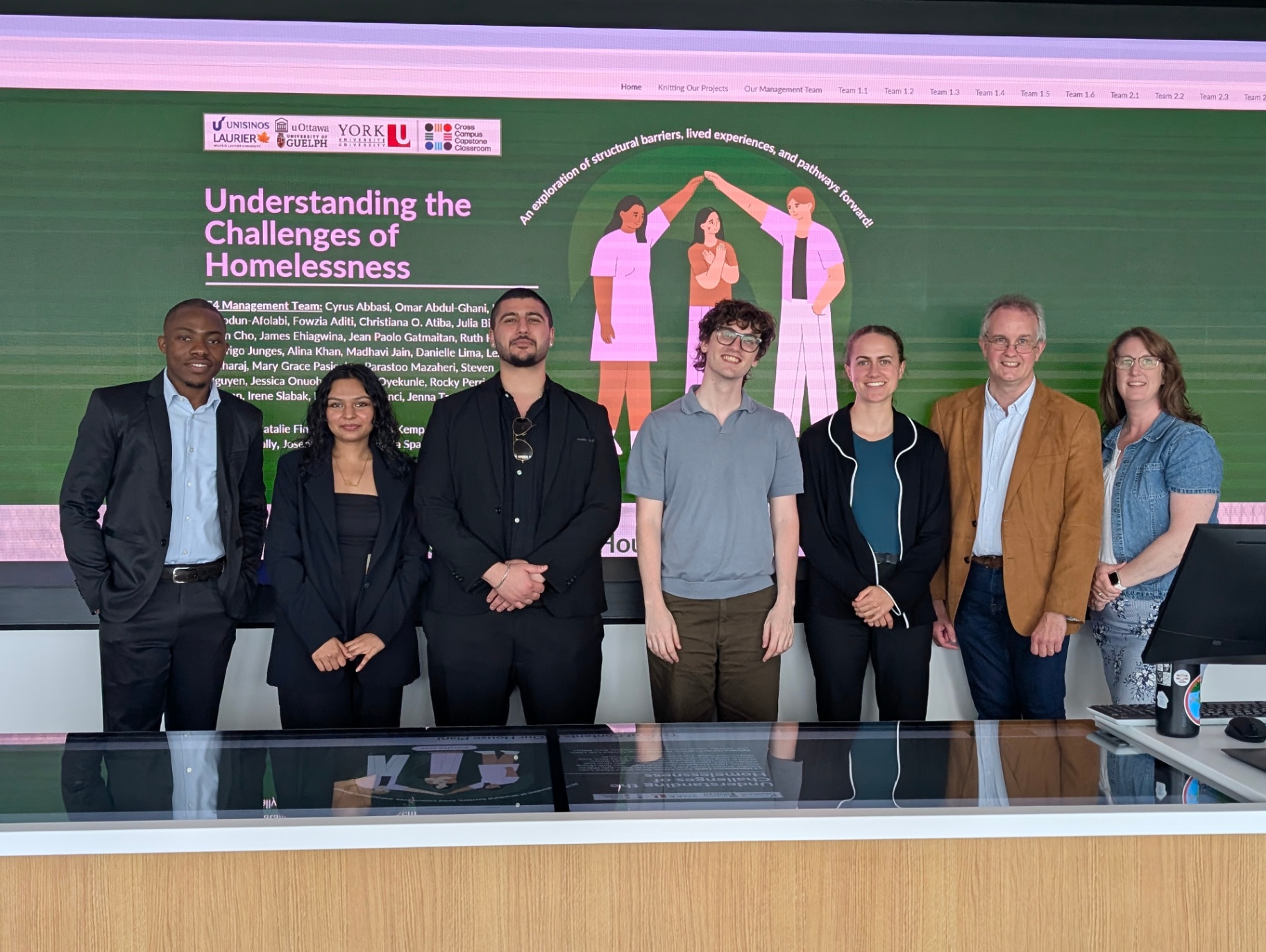The morning of September 26, 2025, the air in Desmarais carried more than the fragrance of fresh coffee and early fall. It carried the sense that something long in the making was finally coming into focus. Faculty, students, alumni, industry leaders, and community partners gathered for a matinée that was part celebration, part call to action: the official launch of the Green Academy at Telfer and the beginning of its first Innovation Sprint.
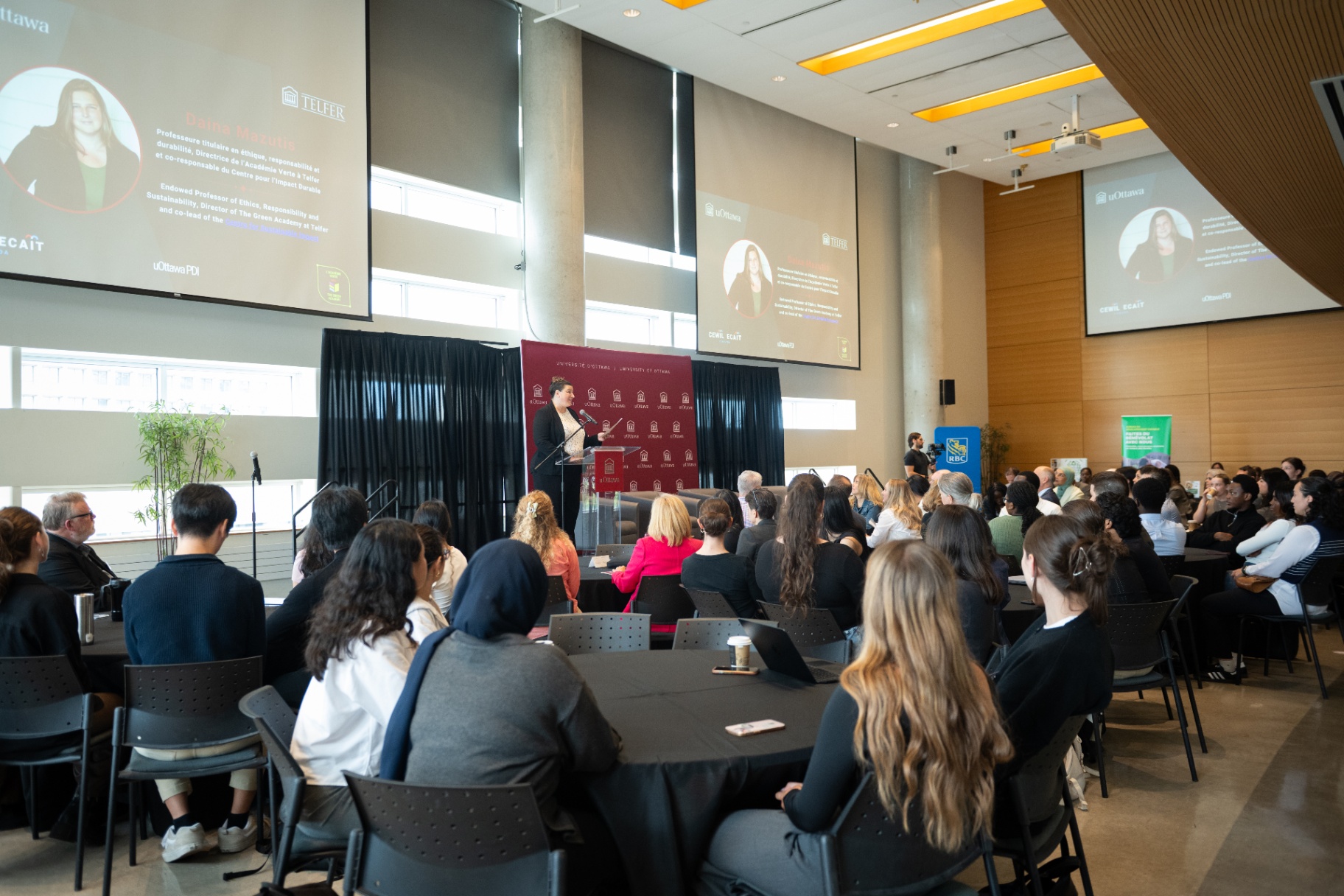
Professor Daina Mazutis, Endowed Professor of Ethics, Responsibility and Sustainability, Director of the Green Academy and the new Director of Sustainability at Telfer, opened the matinée by inviting us into a story that has been years in the making, a story of weaving sustainability into the DNA of teaching, research, and community engagement at Telfer. She reminded us that this Academy is not an arrival, but a continuation of momentum.
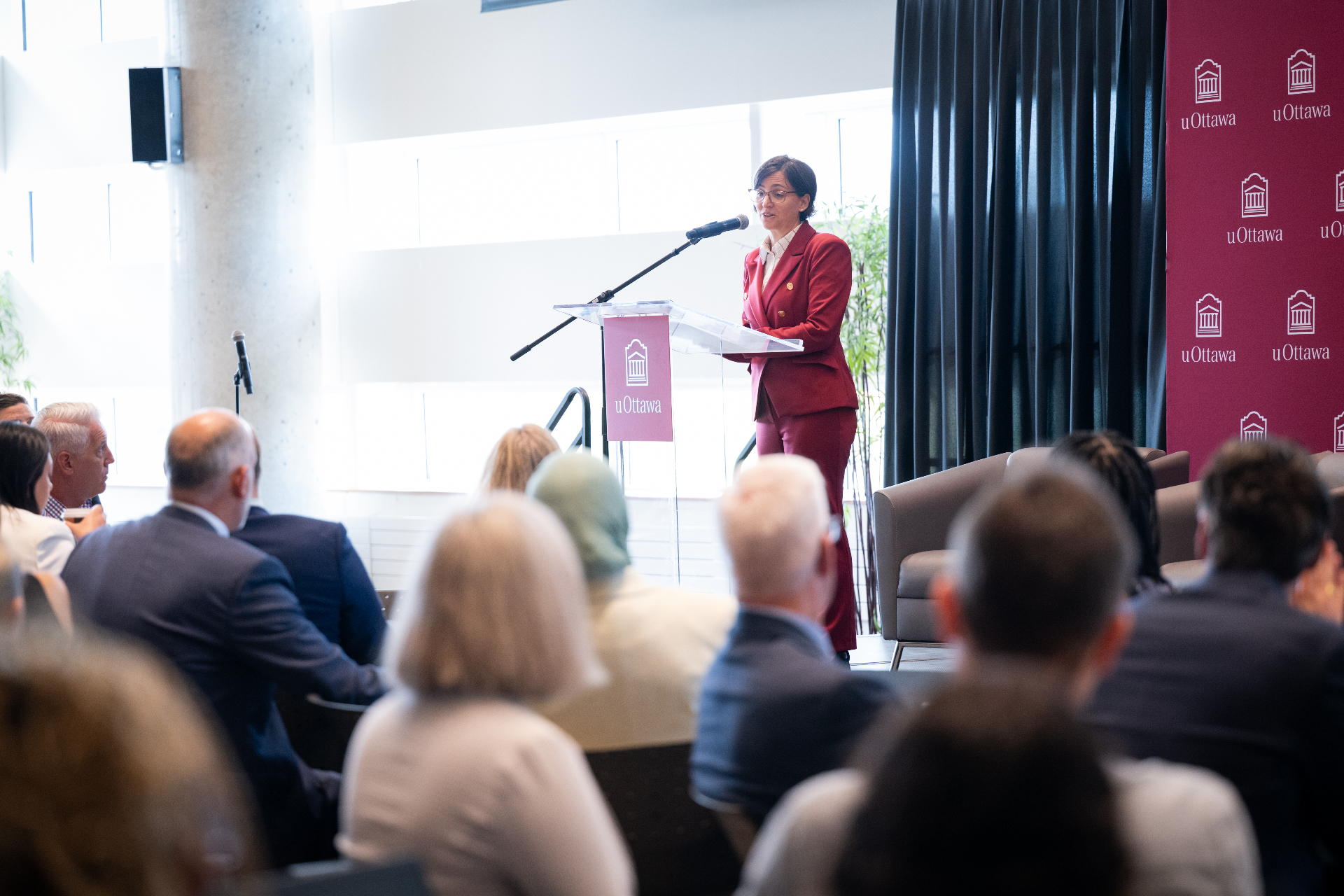
The University’s new President and Vice-Chancellor, Marie-Eve Sylvestre, then placed the moment into a broader frame. September, she noted, is a season of beginnings, with nearly 50,000 students arriving on campus to carve their paths. The Green Academy, supported by a visionary partnership with RBC, is a milestone in uOttawa’s mission to prepare those students not only for careers but for leadership in a world that urgently needs a green transition.
A Generous Gift Fueling the Vision
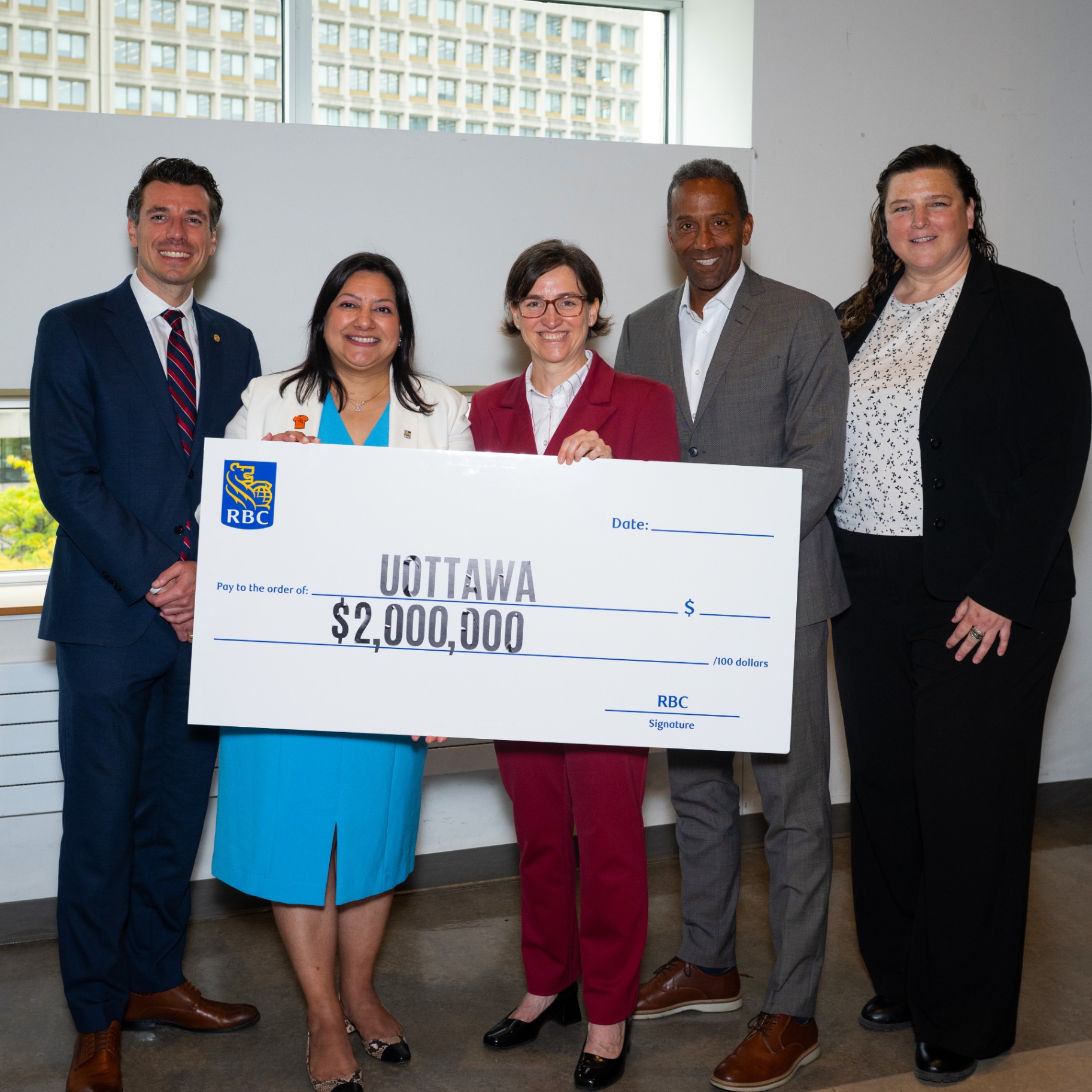
Moments later, Devinder Gill, RBC’s Regional President, lifted the room with an announcement: a $2 million donation from the RBC Foundation to propel the Green Academy’s vision! Her message was clear: education, innovation, and community must intertwine if we are to thrive in a net-zero economy.
Gill spoke directly to students, reminding them that what they were building here was not just academic credit but capacity: systems thinking, responsible management, and the confidence to make a tangible difference:
“You will gain a strong foundation in sustainable business and systems thinking, while working with industry partners to make a real difference.”
A Dean’s Challenge
Before the matinée shifted to the panel, Dean Stéphane Brutus of the Telfer School of Management spoke of Telfer’s deep roots in experiential learning, of students tackling real challenges with courage and creativity, and of the Green Academy as a new catalyst to amplify this work. He emphasized that this launch was not only a milestone for Telfer, but also for the wider university community: students from across all faculties had gathered at Telfer to take part in the sprint, reflecting its commitment to interdisciplinary collaboration.
.jpg)
“This launch,” he reminded the audience, “is not just about projects. It is about equipping you to lead the next wave of cross-sector innovation, initiatives that move beyond the classroom into communities and industries that need them most.”
Dean Brutus framed the path ahead with a challenge: to bring curiosity, creativity, and courage to the three-day sprint.
A Full Circle Moment
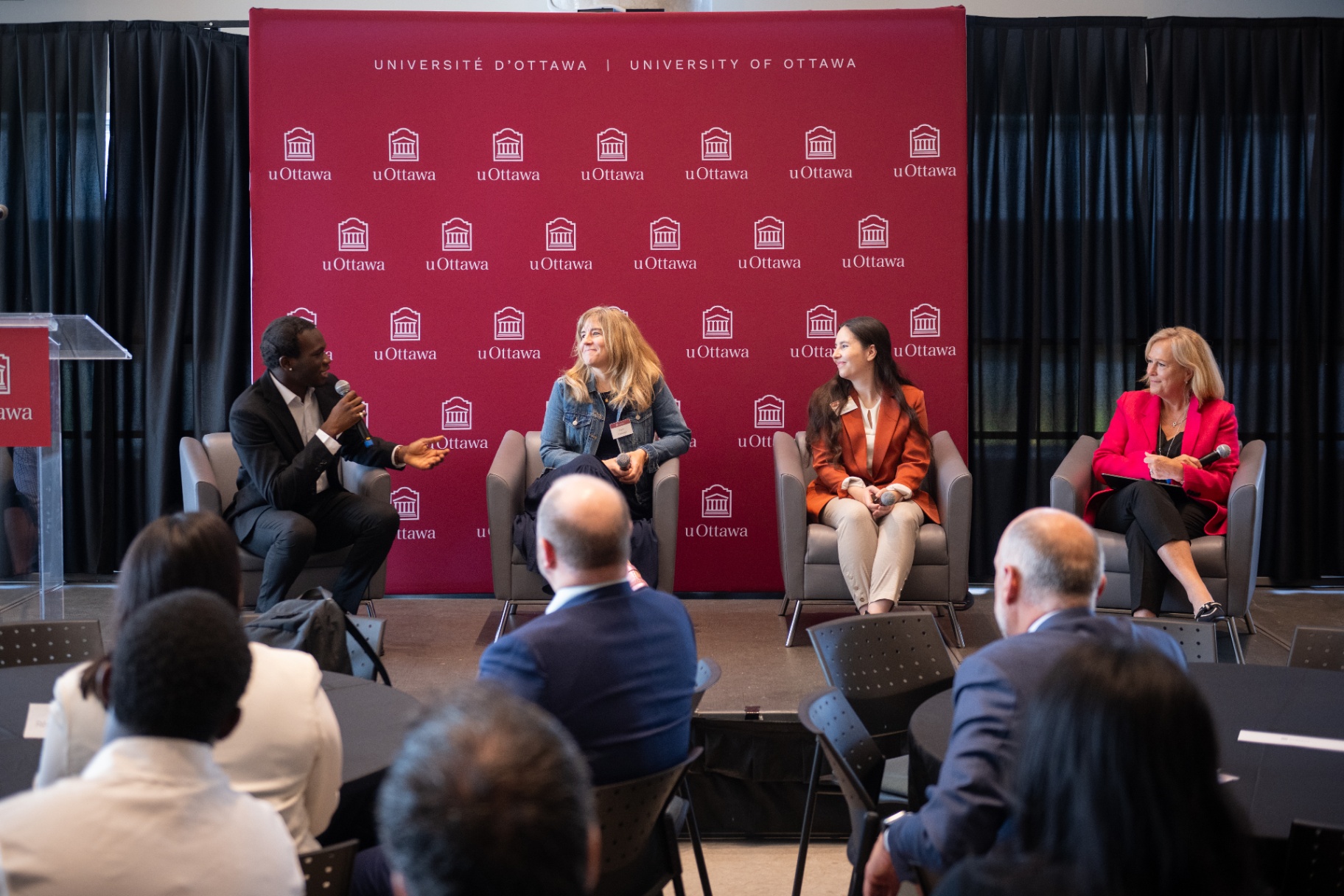
The matinée then turned to its centerpiece: a panel on Sustainable Food Systems. At its heart was Alida Burke, a Telfer alumna who, once sat where today’s students now sat. As a member of Enactus, she began with nothing more than an idea. With early support from RBC, that idea became Growcer a company that now empowers more than a hundred communities across North America to grow fresh food locally. Beside her, sat Tai Adewoye, the panel’s student moderator and a leader within Enactus today. Tai has helped drive NuPacko, a student-run social enterprise tackling nutrition gaps through an innovative cookie-for-cause model. His presence on stage symbolized continuity, proof that today’s student projects can still become tomorrow’s impact ventures.
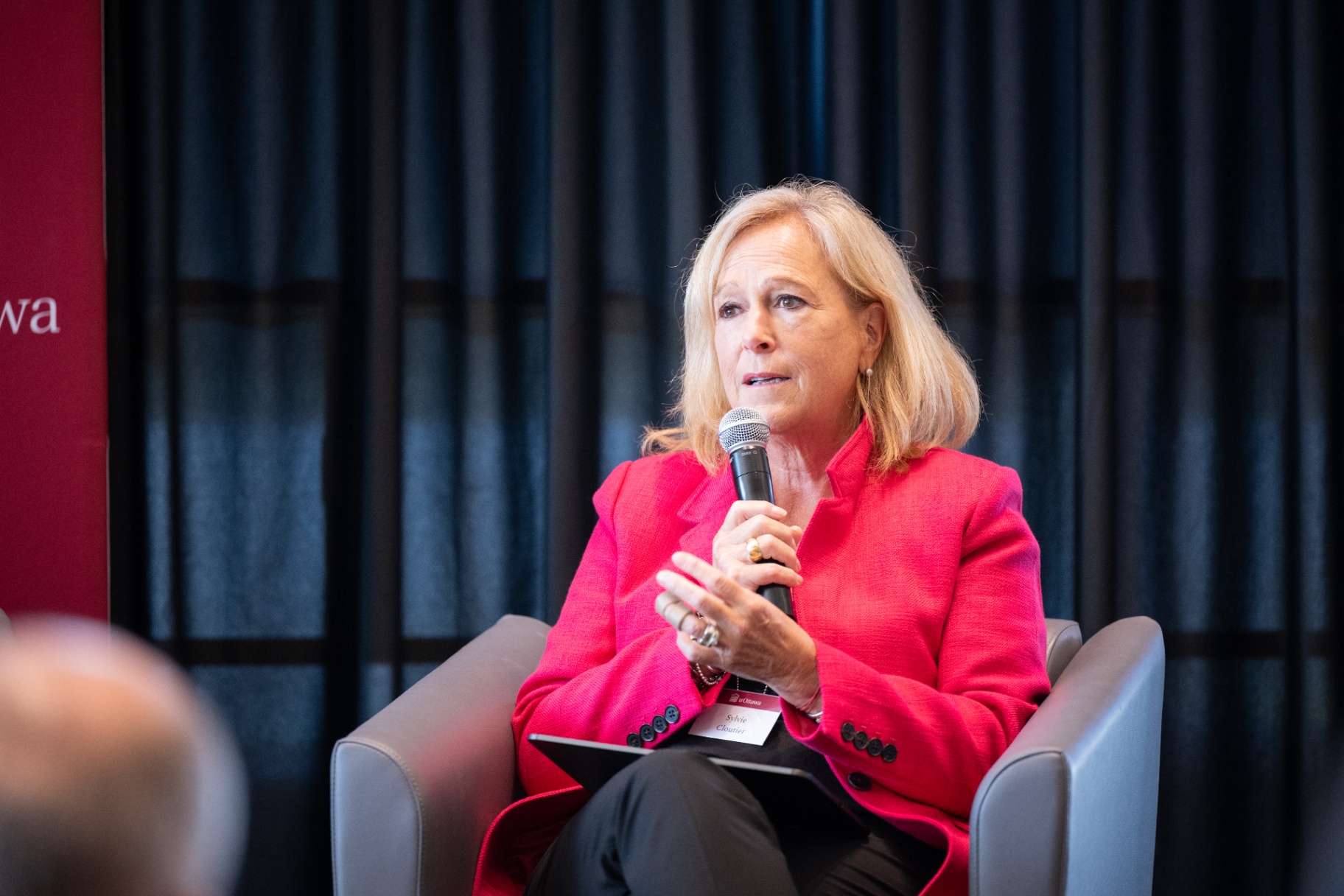
Then came the perspective of scale. Sylvie Cloutier, President and CEO of CTAQ (Conseil de la Transformation Alimentaire du Québec), spoke from the vantage point of industry. She reminded students that their ideas will only matter if they can grow, adapt, and meet the urgency of Canada’s agri-food sector, where innovation is not optional, but vital.
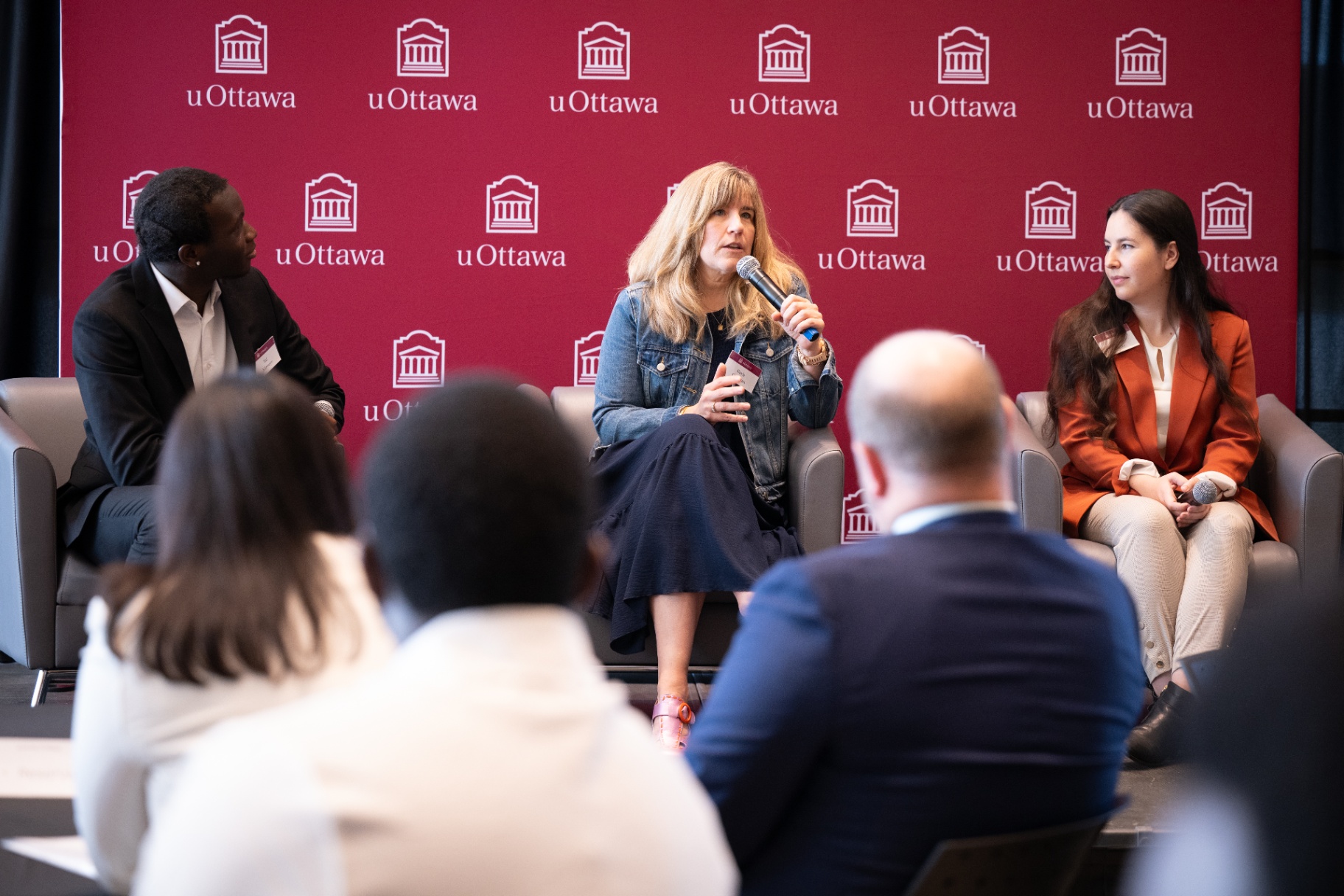
Finally, Gayle Corcoran, Senior Director of Social Impact at RBC, tied the circle together. She spoke of the role of funders: to de-risk bold ideas, to act as bridges, to give youth-led innovation the chance to take root and grow into something enduring. Together, their dialogue painted more than a picture, it traced a lineage. From student projects to industry adoption, from community need to systemic impact, the arc was clear: resilience, collaboration, and purpose are not luxuries but necessities.
And the students in the room could see, perhaps for the first time, how the path before them had already been walked, supported, and scaled.
Where Conversation Became Connection
By lunchtime, the matinée shifted from words to encounters. The Camille Villeneuve room was transformed into a small ecosystem of its own, each partner booth a window into the many ways sustainability takes shape in our community. Chef Ric’s, caterer of the lunch, showed students how a social enterprise can nourish both the body and the city. Every catered meal supports the Ottawa Mission, a lifeline for many in our community that provides meals, shelter, and training opportunities.
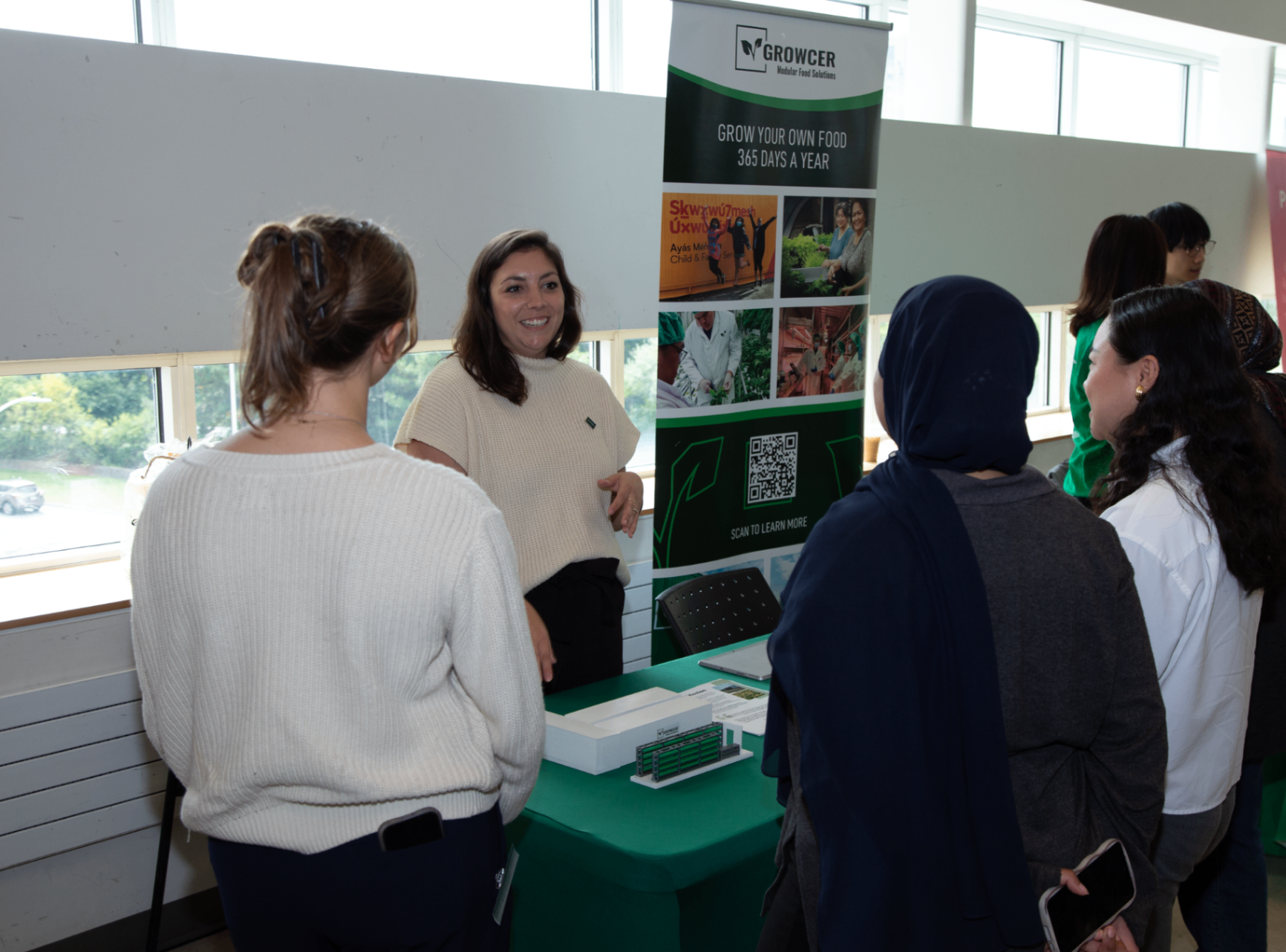
Nearby, Growcer joined the showcase, showing students how modular vertical farms, born from a student idea, are feeding and empowering communities across Canada to grow food locally.
The Office of Campus Sustainability, represented by Holly Gordon, invited students to consider changes closer to home, from reducing waste on campus to rethinking everyday habits. Students saw what campus-level food sustainability can look like and how uOttawa is converting leftover meals into opportunity through Free Food Alert, a system that signals when surplus food from events is available, turning waste into access.
They could also hear about the Green Dining Hall, the first 4-star certified green restaurant at a Canadian university, where energy, water, sourcing, and waste reduction are baked into every meal served. The booth also highlighted their broader food initiatives: campus-wide composting of scraps and food production waste, a ban on bottled water (making the campus one of Ontario’s first to do so), reusable container programs (like “Friendlier”), and packaging reduction strategies that cut take-out waste by nearly a million items per year.
The Upcycling Club, led by Maximilian Benda, a Telfer student, invited students to imagine sustainability with their hands in the soil. Their projects focus on the revitalization of the community garden on King Edward, where they are designing and building new garden beds to expand local food production and create a shared space for learning and nourishment. The club’s desire to explore how sustainable practices can support people facing homelessness and housing insecurity, from rethinking how resources are used to experimenting with practical, low-cost solutions resonated with all the guests present.
Meanwhile, the student-run Enactus social enterprise NuPacko held its own kind of gravity. At their booth, a vision that transcends snacks: a cookie designed to fight nutritional deficits, with every $2 cookie purchased matched by a cookie donated to someone facing food insecurity a one-for-one model built on agency and empathy.
Faculty member Dorra Jlouli, founder and CEO of Pascalyna, brought her entrepreneurial lens to the launch. Pascalyna is a Canadian brand rooted in sustainability, with a focus on reusable packaging and innovative approaches to reducing waste. Her presence reminded students that sustainability is not only an academic pursuit but can also take shape as a business model, one that experiments with new ways of aligning enterprise with environmental responsibility. Students wove between tables, listening, tasting, questioning.
Coffee generously donated by Happy Goat Coffee Company, a local roaster grounded in sustainable practices, warmed their hands, while food prepared by Chef Ric’s sustained their energy. We are grateful to Happy Goat for this contribution, which added both comfort and community spirit to the launch.
Each partner represented a piece of the sustainable food systems puzzle, and together they offered guests and students not just information but inspiration, literal and figurative fuel for the sprint weekend course that awaited.
Looking Ahead
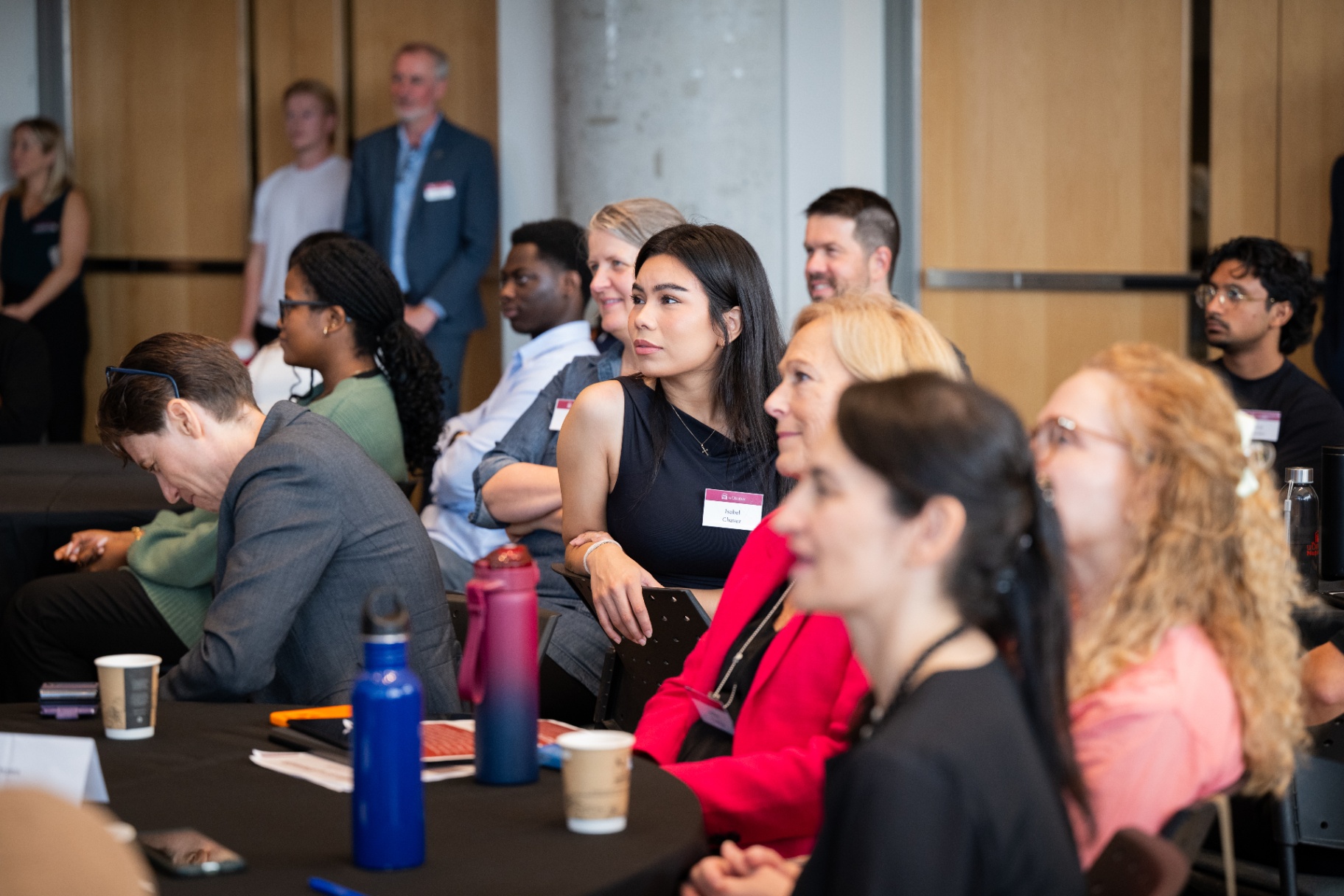
The Green Academy’s launch was not just an event. It was a declaration. That partnerships matter. That students, when trusted with real problems and real collaborators, can reimagine the systems we all depend on. And that with support like RBC’s, who not only invest in education but believe in the potential of youth-led innovation, those ideas have the chance to grow roots and scale into change that lasts. And this was only the beginning.
By the time Professor Mazutis closed the matinée, the room felt changed. Not by ceremony, but by possibility.
Students had been challenged, inspired, and equipped as they dove into the challenge of rethinking the food systems that feed us all. In the days that followed, nine student teams, guided by Professor Sandra Schillo, worked with Sylvie Cloutier’s CTAQ, bringing industry insight directly into the lab. And thanks to the Professional Development Institute (PDI), which opened its space as both host, data tools experts and incubator, the sprint became more than an exercise it became a laboratory for change. Their stories, of bold ideas and lessons learned, will be shared very soon.
And when you read them, we hope you’ll ask yourself: what possibilities might take root if you, too, stepped into the circle?
What is the Green Academy?
It’s a cross-campus, interdisciplinary initiative dedicated to advancing sustainability in business and society, made possible by a generous donation from the RBC Foundation. It supports students through hands-on courses, innovation sprints, and community projects that prepare them to lead Canada’s green transition. It empowers faculty to integrate sustainability into their teaching and research, building bridges across disciplines and expanding impact. And it brings together partners from industry and community to tackle real-world challenges, creating solutions that combine performance with purpose.
By uniting students, faculty, and partners, the Green Academy positions uOttawa as a hub where sustainability is not only studied but practiced, turning knowledge into action for a more resilient and responsible future.


This article was written by Takwa Youssef, coordinator of Telfer's Green Academy.
As coordinator of the Green Academy, Takwa plays a key role in supporting the delivery of the academy's interdisciplinary programs. She oversees logistics, event coordination, and resource management, ensuring the successful execution of courses, workshops, training, and research. Takwa bridges faculties, services, and external partners, cultivating collaboration that enriches the program’s impact. She manages communication, finances and administration, while also driving the Academy’s long-term vision by strengthening connections across disciplines and supporting its ongoing growth.
.jpg)

.jpg)
